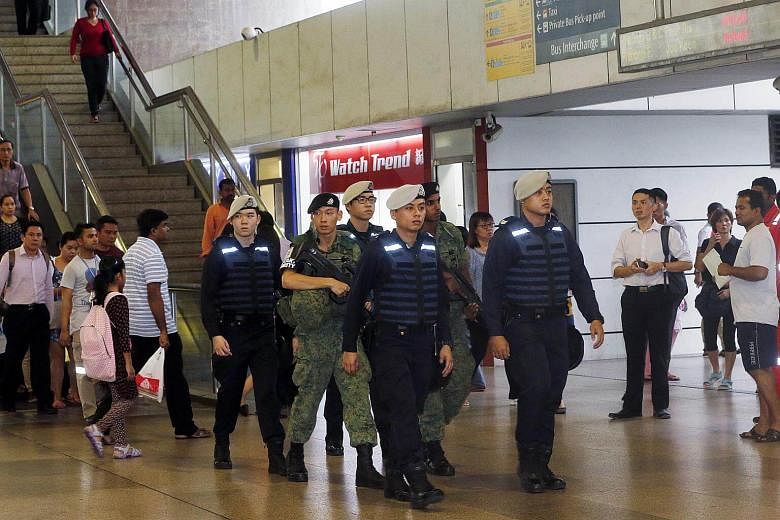It is an oft-repeated line by leaders here: Singapore is not immune from the threat of terror.
And the past few years have made that bleak reality clearer than ever, serving as a stark reminder that radical teachings have found a foothold despite decades of tending to social cohesion here.
The number of terror-linked arrests in Singapore has reached new heights, with 58 people nabbed under the Internal Security Act (ISA) since January last year.
While the majority were two groups of radicalised Bangladeshi nationals working here, the past two years also saw 18 radicalised Singaporeans arrested - a sharp rise from the 11 nabbed between 2007 and 2014.
Most were self-radicalised, such as car washer Rosli Hamzah and truck driver Mohamed Omar Mahadi, who were listeners of Radio Hang FM, a Batam-based religious station that features extreme preachers. The duo had planned to fight in Syria.
At a time of rising divisiveness and extremism in the region, analysts say Singapore must tread carefully in managing the concerns of different communities.
Mr Remy Mahzam, associate research fellow at the International Centre for Political Violence and Terrorism Research, said Singapore must be wary of developments regarding issues of identity and religion in the region. These may ignite tension and fault lines can be exploited by extremists looking to sow chaos and discord.
Unhappiness over having to make compromises in a multiracial and multi-religious country, and conflicts that have battered Muslim communities overseas, can play a part in triggering resentment among a vulnerable few here.
Detainee Zulfikar Mohamad Shariff, who was arrested in July, had after all radicalised at least two others with his extremist views.
The controversial figure, who first made headlines over a decade ago as head of fringe group Fateha, had long agitated on Muslim issues and pushed views that could drive a wedge between communities here.
After news of Zulfikar's arrest, Law and Home Affairs Minister K. Shanmugam said: "You will get Zulfikars around the world and you will get people in Singapore who get radicalised. What we need is to make sure that the mainstream, the middle ground, is solid."
These past two years also saw 40 Bangladeshi nationals working in Singapore, who were plotting attacks back home or who owned and spread radical materials, rounded up under the ISA.
The authorities and community leaders have responded to the growing scourge of terrorist ideology with calls for Singaporeans to stand united and steps to counter such ideology more fiercely.
Among other things, Singapore has made it mandatory from next year for Islamic religious teachers to register under the Asatizah Recognition Scheme, to ensure Muslims have access to legitimate Islamic teachings. The Religious Rehabilitation Group has also given talks at foreign worker dormitories on the dangers of radical ideology.
Constant efforts to strengthen bonds between the different races and religions here have also helped. As security forces are beefed up, Singapore is reaching out to citizens through efforts like SGSecure to increase preparedness and resilience.
As Mr Shanmugam noted, the threat of terrorism is at its highest: "It is no longer a question of whether an attack will take place, but really, when is an attack going to take place. And we have to be prepared for that."


